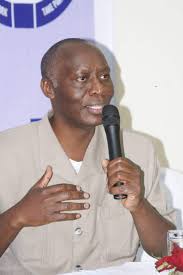Malawi’s revered governance and civic education expert Ollen Mwalubunju has expressed fear that the forthcoming September 16 General Elections could be another democratic illusion for Malawians, foretelling that the election is a re-run of failure and not a beacon of hope.
Mwalubunju – in a statement he shared with us – dared Malawians to stop waiting for change and start becoming the change, calling for a national awakening that demands accountability and rejects mediocrity.
“The September 16 presidential race is not a turning point—it is a tragic repetition. This election is a re-run of failure and not a beacon of hope—it is a cruel illusion. A constitutional checkbox. A hollow performance,” thus he begins his statement.
Mwalubunju is not a stranger in the governance circles, as he served the National Initiative for Civic Education (NICE) Public Trust as its founding Executive Director, propelling the institution from a mere project to a public trust.
Under his leadership, NICE played a crucial role in deepening democracy and improving governance by educating citizens on their rights and responsibilities, promoting participation in public life, and enhancing awareness of core democratic principles.
Mwalubunju observed that in 2020, Malawians rejected the Democratic Progressive Party (DPP) in pursuit of a new dawn and transformation to their livelihoods.
He, however, expressed disappointment that the Tonse Alliance, led by the Malawi Congress Party (MCP), has delivered nothing, but recycled failure, with incompetence, corruption, broken promises and loss of direction hijacking the change that people demanded.
He wondered why “the same failed contenders—MCP and DPP are back on stage dominating the race, offering the same empty promises”.
“Their ethnic strongholds and entrenched political machinery give them an edge, but their visions are nonexistent. President Lazarus Chakwera and former President Peter Mutharika have both held the highest office. Their records are clear: no vision, no transformation, no future. The choice between them is not a choice—it is a trap,” charged Mwalubunju.
He further argued, “Malawians are not voting for change. They are voting for continued collapse. Unless a miracle happens—unless those leaders who have not been tested among the contesting candidates like Dalitso Kabambe from UTM emerges with a genuine plan for economic revival, Malawi will continue to spiral into chaos.”
Below are rest of the points Mwalubunju makes in the statement:
A Nation in Freefall
- Malawi is not just struggling—it is collapsing.
- The economy is in tatters, with no credible recovery strategy.
- The civil service is bloated, entitled, and incompetent.
- Corruption and nepotism are systemic, infecting every level of government.
- Food insecurity is rampant; forex shortages have crippled production.
- Small businesses are dying under the weight of economic mismanagement.
- Prices of essential goods rise daily; life is unbearable for ordinary citizens.
This is worrisome and it is a systematic destruction of a nation that should be thriving. Malawi is not at war, yet it ranks among the poorest countries on Earth. This is not just failure—it is betrayal and shameful.
A Nation Left Behind
While, our neighbors—Zambia, Tanzania and Mozambique—are moving forward, Malawi remains stuck. Even Rwanda, once reduced to ashes by genocide, has risen to become a model of African development. Ironically, Rwanda borrowed some key public policies from Malawi and implemented them. We, the originators, remain stagnant.
Why? Because Rwanda has visionary leadership. Malawi has had transactional leaders, driven by self-interest and short-term gains, steering a nation in crisis with no compass.
Malawi is not poor because it lacks resources. It is poor because it has been robbed of leadership. The pain of this betrayal must be felt. The shame must be acknowledged. And the urgency must be acted upon that Malawi needs a visionary leadership that sees beyond elections.
Final Word: A Nation at War with Itself
Malawi is not at war with another country. It is at war with itself—with its own failure to dream, its own refusal to act, and its own acceptance of mediocrity.
Malawians must stop celebrating leaders who fail– but reject them, and start demanding those who deliver. Malawians must stop waiting for change and start becoming the change. Malawi must have a national awakening that demands accountability and rejects mediocrity.